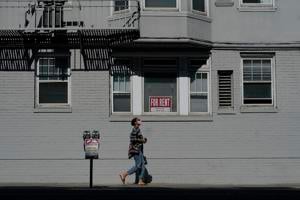State accuses San Francisco of unlawfully denying multi-family housing

(The Center Square) – The California Department of Housing and Community Development (HCD) informed San Francisco officials this week that the county and city may have violated state housing law by rejecting multiple housing projects and utilizing an overly extensive permitting process.
In a letter sent to San Francisco city and county officials on Tuesday, Housing Accountability Unit Chief Shannan West said that the HCD is concerned that officials are “constraining the provision of housing” in the city after recently rejecting two proposed housing projects.
In October, the San Francisco County Board of Supervisors voted to block two housing projects that would have created a total of 811 new domiciles, including more than 130 affordable housing units. These projects were initially approved by the county’s planning commission before they were rejected by the Board of Supervisors, and the board did not offer written findings to support project denial.
The HUD said in its letter that the denial of one of these projects without written findings may have violated the Housing Accountability Act. Under the act, local governments cannot deny a project that meets general plan, zoning and subdivision standards without written findings that prove the project would negatively impact public health or safety.
“While these projects have sought different types of approval, they share the circumstance of having prior Planning Commission approvals of significant housing projects being overturned by the BOS – without any documented findings,” the letter said. “HCD is concerned that this represents a larger trend in the City/County.”
HCD also noted that San Francisco’s permitting process timeframe “exceeds the norms” for jurisdictions of a similar size, saying that the process “acts as a constraint” on housing development. The letter also noted that there are generally “significant delays” in approving housing projects in the city/county, adding that the board exceeded a “five Hearing Rule” that limits municipalities to a maximum of five hearings for housing projects.
These findings come when California remains in a statewide housing shortage and crisis. According to HCD, the state has averaged fewer than 80,000 new homes each year – far lower than the approximate 180,000 needed annually to match population growth.
California also has several cities in the top ten most expensive housing markets in the U.S., with San Francisco leading as the most expensive city in the country, according to a recent analysis by Rocket Mortgage. The research found that the median listing price of a home in San Francisco is about $1.3 million, while another report estimates that the average price of rent in the city stands at $3,100.
To address the shortage of housing, the state legislature declared in 2018 that housing availability is a high priority and said local and state governments have a responsibility to facilitate housing development for the needs of people at all economic levels in their communities.
With this in mind, the HCD requests that the Board of Supervisors provide written findings to the organization and project applicants within 30 days to explain the reasoning and evidence to support denying the housing projects.
Housing development is not an isolated issue
Housing affordability and development aren’t issues isolated to one part of the state, and San Francisco is not the only jurisdiction facing push-back for recent project denials.
Last Thursday, Malibu homeowners Jason and Elizabeth Riddick filed a lawsuit against the city after the planning commission rejected the couple’s request to construct an accessory dwelling unit (ADU) on their property. ADUs are smaller homes located on the same lot as an existing home. The unit was going to be built for Elizabeth’s mother, an 82-year-old who suffers from numerous health ailments.
This denial comes after a multi-year effort from the state legislature to make it easier for residents to build ADUs. In a news release, the Pacific Legal Foundation said the planning commission told the Riddick’s that their project did not align with the city’s Local Coastal Program, despite previously saying that their project was “like a poster child for why the ADU law was created.”
“California faces a severe housing crisis, and ADUs are an essential part of the solution,” David Deerson, an attorney at Pacific Legal Foundation who is representing the Riddicks, said in a statement. “The state legalized the construction of ADUs for situations exactly like the Riddicks’. The city can’t ignore state law and deny property owners the right to use their property.”
In a report released in July, the PLF found that the number of permits issued for ADUs across the state varies across jurisdictions.
According to the report, some cities, including Los Angeles, have issued thousands of ADU permits since the state reformed its ADU law. But in other areas, such as San Diego and Riverside counties, the process takes more than 180 days on average, massively exceeding the state’s 60-day permit review requirement.
The Malibu couple’s lawsuit, Riddick v. City of Malibu, was filed in the Los Angeles County Superior Court last week.
Disclaimer: This content is distributed by The Center Square
